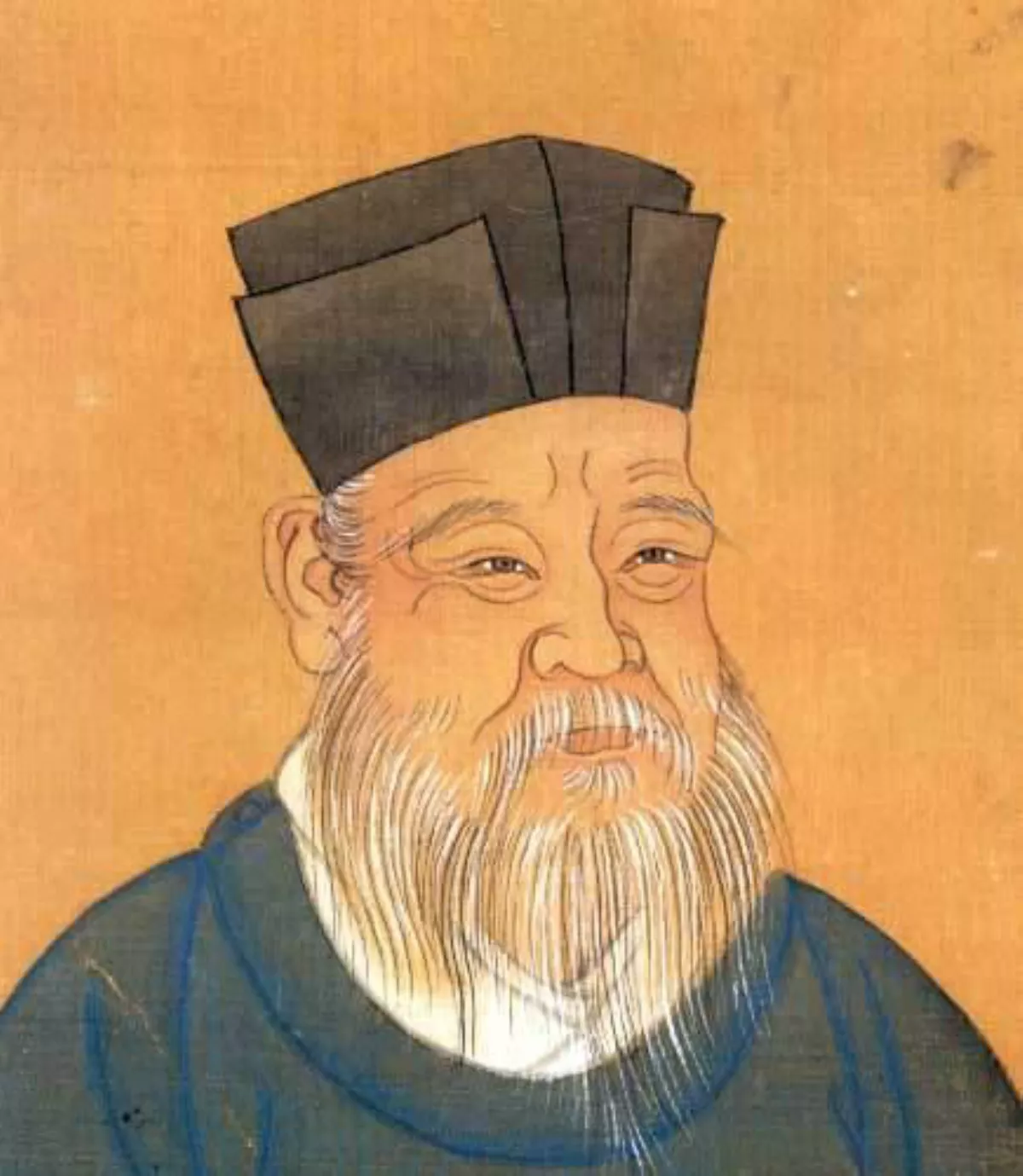 1.
1. Zhu Xi, formerly romanized Chu Hsi, was a Chinese philosopher, historian, politician, poet, and calligrapher of the Southern Song dynasty.

 1.
1. Zhu Xi, formerly romanized Chu Hsi, was a Chinese philosopher, historian, politician, poet, and calligrapher of the Southern Song dynasty.
Zhu Xi placed great emphasis on rationality, opposed mysticism and religious experience, and constructed a huge philosophical system.
Zhu Xi's thought exerted profound influence, becoming the official state ideology of China from the Yuan dynasty onward, and was later adopted in other East Asian countries such as Japan, Korea, and Vietnam.
Zhu Xi wrote, compiled and edited almost a hundred books and corresponded with dozens of other scholars.
Zhu Xi acted as a teacher to groups of students, many of whom chose to study under him for years.
Zhu Xi built upon the teachings of the Cheng brothers and others, further developing their metaphysical theories in regards to Li and Qi.
Zhu Xi's followers recorded thousands of his conversations in writing.
Zhu Xi, whose family originated in Wuyuan County, Huizhou, was born in Fujian, where his father worked as the subprefectural sheriff.
In 1148, at the age of 19, Zhu Xi passed the Imperial Examination and became a presented scholar.
In 1179, after not serving in an official capacity since 1156, Zhu Xi was appointed Prefect of Nankang Military District, where he revived White Deer Grotto Academy.
In 1208, eight years after his death, Emperor Ningzong of Song rehabilitated Zhu Xi and honored him with the posthumous name of Wen Gong, meaning "Venerable gentleman of culture".
In 1241, a memorial tablet to Zhu Xi was placed in the Confucian Temple at Qufu, thereby elevating him to Confucian sainthood.
Today, Zhu Xi is venerated as one of the "Twelve Philosophers" of Confucianism.
Zhu Xi maintained that all things are brought into being by the union of two universal aspects of reality: qi ; and li.
The source of qi is not so clearly stated by Zhu Xi, leading some authorities to maintain that he was a metaphysical monist and others to maintain that he was a metaphysical dualist.
Zhu Xi argues that li existed even before Heaven and Earth.
Zhu Xi discussed how he saw the Supreme Ultimate concept to be compatible with principle of Taoism, but his concept of taiji was different from the understanding of Tao in Daoism.
Zhu Xi argued that there is a central harmony that is not static or empty but was dynamic, and that the Supreme Ultimate is itself in constant creative activity.
Zhu Xi considered the earlier Confucian Xunzi to be a heretic for departing from Mengzi's idea of innate human goodness.
Zhu Xi's metaphysics is that everything contains li and qi.
Zhu Xi did believe in the existence of spirits, ghosts, divination, and blessings.
Zhu Xi practiced a form of daily meditation called jingzuo similar to, but not the same as, Buddhist dhyana or chan ding.
Zhu Xi's meditation did not require the cessation of all thinking as in some forms of Buddhism; rather, it was characterised by quiet introspection that helped to balance various aspects of one's personality and allowed for focused thought and concentration.
Zhu Xi's meditation attempted to reason and feel in harmony with the universe.
Zhu Xi believed that this type of meditation brought humanity closer together and more into harmony.
Zhu Xi heavily focused his energy on teaching, claiming that learning is the only way to sage-hood.
Zhu Xi wished to make the pursuit of sage-hood attainable to all men.
Zhu Xi lamented more modern printing techniques and the proliferation of books that ensued.
Zhu Xi wrote what was to become the orthodox Confucian interpretation of a number of concepts in Taoism and Buddhism.
Zhu Xi found Buddhist principles to be darkening and deluding the original mind as well as destroying human relations.
Zhu Xi's teachings were to dominate Neo-Confucians such as Wang Fuzhi, though dissenters would later emerge such as Wang Yangming and the School of Mind two and a half centuries later.
Zhu Xi's philosophy survived the Intellectual Revolution of 1917, and later Feng Youlan would interpret his conception of li, qi, and taiji into a new metaphysical theory.
Zhu Xi was influential in Japan known as, and in Korea known as, where it became an orthodoxy.
Zhu Xi had, from an early age, followed his father and a number of great calligraphers at the time in practicing calligraphy.
Zhu Xi was skillful in both running and cursive scripts, especially in large characters, but extant artworks consist mainly of short written notes in running script and rarely of large characters.
Zhu Xi was skillful in the central tip, and his brush strokes are smooth and round, steady yet flowing in the movements without any trace of frivolity and abruptness.
Zhu Xi maintained that while rules had to be observed for each word, there should be room for tolerance, multiplicity and naturalness.
Whilst Master Zhu Xi inherited the orthodox teaching and propagated it to the realm of sages and yet he was proficient in running and cursive scripts, especially in large characters.
Master Zhu Xi was loyal, learned and a great scholar throughout ages.
Zhu Xi was superb in calligraphy although he did not write much in his lifetime and hence they were rarely seen in later ages.